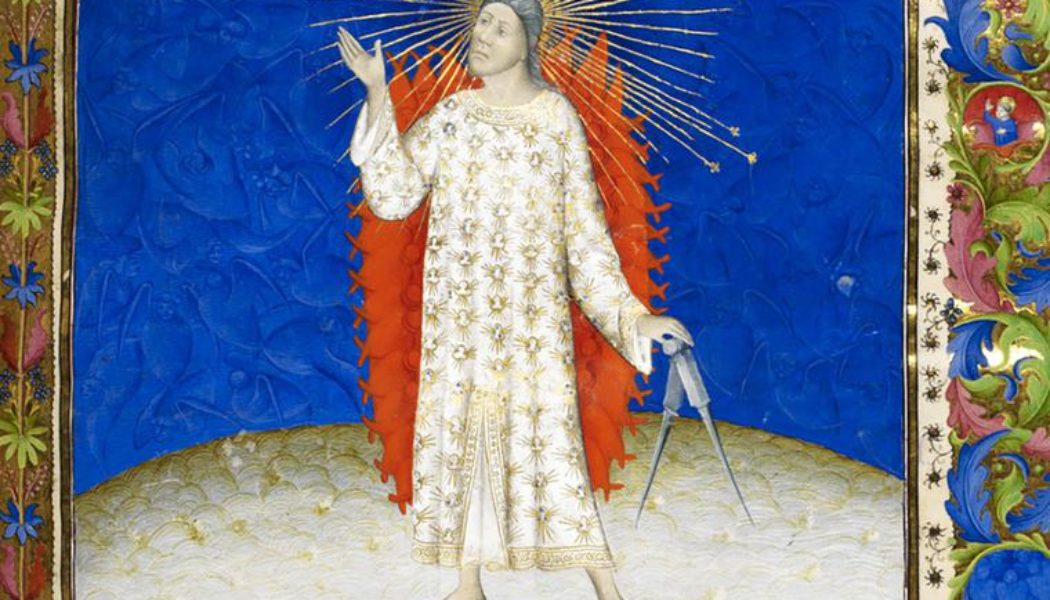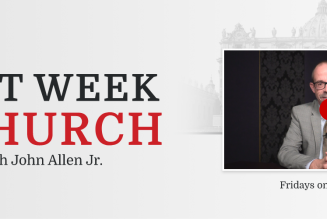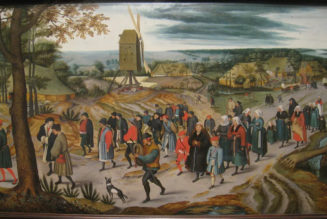
“I had always felt life first as a story: and if there is a story there is a story-teller.” —G. K. Chesterton
The incomparable Jeeves, valet extraordinaire, quotes Browning frequently throughout the P.G. Wodehouse corpus: “God is in his heaven, and all’s right with the world.” It’s always a hopeful insertion indicating some kind of resolution, and, in a way, Jeeves is referring to Wodehouse himself as the resolution’s architect — and that Wodehouse, by putting those words in the mouth of Jeeves, was acknowledging the source of his own talent and creativity.
But wait, back up there: Did I mean it? P. G. Wodehouse is God? Yes, at least he was the god of the little worlds he penned and populated — Jeeves and Wooster, Blandings Castle and the golf stories, Mr. Mulliner, Ukridge, Uncle Fred, and the rest. Moreover, Wodehouse was a decidedly benevolent deity who wanted nothing but good and joy and mirth for his creatures — and for his readers, too, for that matter.
I got to thinking about all this recently after reading Fulton Sheen’s observations about medieval philosophy and art. “For the Middle Ages there was no such thing as making Christian art. It was rather a matter of being a Christian,” he wrote in an essay on medieval aesthetics. “If you were a Christian, your art would be Christian.”
Admittedly, Wodehouse was not particularly pious or even observant. He peppered his fiction with clergy and sermonizing, and he frequently incorporated biblical allusions and quotations (not to mention Bertie’s incessant reminders that he won a Scripture Knowledge prize as a child), but there’s little else in the way of overt religion in his stuff. Still, the infant Wodehouse was baptized an Anglican in 1881, and he grew up absorbing the essence and ethos of Christian civilization — Christendom, as we used to call it — just prior to its final collapse in the modern era.
So, applying Sheen’s criterion, the situations and schemes Wodehouse cooked up for his stories naturally reflected the author’s unconscious embrace of the Christian story — that is, the fundamental story of all humanity: “We’re all bastards,” according to Will D. Campbell’s terse summation, “but God loves us anyway.”
That ultimate story invariably unfolds for us as a journey, a road trip — a core element of the Scriptures, from the Exodus and the conquest of Canaan to our Lord’s temporal wanderings that led to Golgotha followed by the Apostles scattering to spread the Word. It’s also the backdrop of many other great narratives. “Throughout history, the road has been the artery of human adventure,” writes Archbishop Charles Chaput, and so “the road, and the stories it carries, so often figure in memorable literature.” From Homer to Dante, Cervantes to Chaucer, and most plainly in John Bunyan’s perennial bestseller, The Pilgrim’s Progress, we get caught up in the tales of expeditions, not merely to share in reaching the trail’s end, but also for the discoveries and epiphanies that the trail itself provides.
Isn’t that why Tolkien’s Lord of the Rings is the world’s favorite bit of storytelling? Sure, we want to see Frodo complete his quest and destroy that infernal Ring in the molten mosh pit of Mount Doom, and J.R.R. could’ve wrapped up that bit of action in a single volume if he’d wanted to — but destroying the One Ring wasn’t the only story he had to tell. Indeed, Tolkien admits that parts of the story weren’t even his to tell. “So the essential Quest started at once,” Tolkien wrote W.H. Auden concerning LOTR’s genesis. “But I met a lot of things on the way that astonished me.” It’s as if the extraordinary saga borne of his imagination took on a life of its own, and Tolkien was simply taking notes as he tagged along. Yet those notes included so much: Narratives of revelation and redemption, fraternity and fortitude, selflessness and spunk, all threaded throughout the sojourn’s principal drama.
That combination of itinerary and weighty insight is not particularly prevalent in Wodehouse’s lighthearted fiction, to be sure, but there’s plenty of motion and direction. For example, Bertie Wooster’s complicated, humorous entanglements (and Jeeves’s deft untanglings) typically center on English country estates, the French Riviera, or New York’s Manhattan of the Roaring Twenties. Obviously, Bertie makes voyages from time to time, but his comic accounts unfold on site rather than en route. Even so, you can trace journeys — in Bertie himself, in his relational mesh — that occur with every hilarious disentanglement adventure, which is what prompts Jeeves’s frequent allusion to God’s heavenly oversight.
This is where we come in. Our own lives are disentanglement adventures that we’re writing ourselves every day. We’re collaborating with God in the composition of our own pilgrims’ progress. God calls us to himself and gives us the wherewithal (that is, grace) to act on that call, but we do the trudging — the plodding, the resting, the stumbling, three steps forward, two steps back — in the general direction of the celestial Jerusalem. We — like Wodehouse, like Tolkien — are the little gods of our personal narratives, a privilege that in no way diminishes the Creator’s prerogatives. Instead, it’s an astonishing sign of divine condescension. “God is the sovereign master of his plan,” reads the Catechism. “But to carry it out he also makes use of his creatures’ co-operation” (306).
And what is God’s plan? “The universe was created ‘in a state of journeying’ (in statu viae) toward an ultimate perfection yet to be attained, to which God has destined it” (§302). We all have a part to play in that journeying toward perfection — we all have a role in the cosmic drama, and there’s no telling how critical our most humdrum routines might contribute to it. Sam Gamgee, Frodo’s indefatigable companion, alludes to this idea in The Two Towers.
The brave things in the old tales and songs, Mr. Frodo: adventures, as I used to call them. I used to think that they were things the wonderful folk of the stories went out and looked for, because they wanted them, because they were exciting and life was a bit dull, a kind of a sport, as you might say. But that’s not the way of it with the tales that really mattered, or the ones that stay in the mind. Folk seem to have been just landed in them, usually — their paths were laid that way, as you put it.
Frodo comments that whether any given circumscribed tale be happy or not so happy (including their own) is not relevant to its participation in the “great tales” that “never end.”
Our own tales are not to be neglected for the same reason. As Sheen observes, the world “is a means to end. In other words, the world is a great sacrament … and since everything is destined to lead us to God, everything is a sacrament.” That includes man himself — us, you and me! “The sacramental philosophy of the Middle Ages insisted that man is the center of the visible universe and that his life’s mission is to lead creatures back to God.”
It’s a crucial perspective that undergirds our entire Faith. We might think that we’re not all that important — just bit players in cosmic crowd scenes perhaps — but that’s rubbish. Everything we do, every choice we make is relevant to our own stories, and so relevant to the Great Tale God is telling for all eternity. That’s why it’s so important that we stick close to the Church and the sacraments — God’s chosen means for keeping us on track and provisioned as the eternal journey advances.
Plus, there’s this: If all of creation is on the move — if the entire everything is slowly, little by little, falling in line with God’s ultimate blueprint — then we don’t want to tarry and be left behind. Therefore, it’s important — vitally so — to keep trucking, even when it seems like God isn’t in his heaven and all’s not right with the world.
Because he is, and all will be righted by journey’s end, so let’s keep going. If our paths don’t cross along the way, I trust we’ll meet up on the other side at the Feast. If you get there first, say some prayers for the rest of us to hurry us on!
Join Our Telegram Group : Salvation & Prosperity







